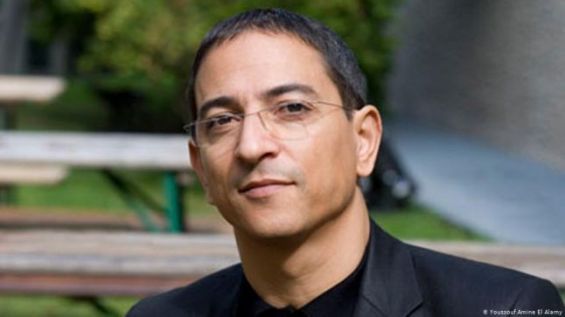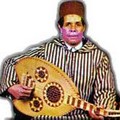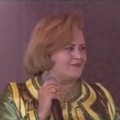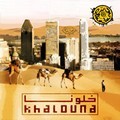Youssouf Amine Elalamy is a widely renowned Moroccan author who first gained attention after the publication of his collection of short stories, A Moroccan in New York. While he never set out to be an author, after writing the aforementioned book, he was hooked and has since published ten novels.
Elalamy also served as the third president of PEN Morocco, one of the many constituents of PEN International, an organization dedicated to defending the rights of authors that are in exile, persecuted, or imprisoned. When he is not writing, Elalamy teaches at Ibn Tofail University in Kenitra and travels across the globe on book tours and writers' conferences.
Can you talk about your background and how your experiences growing up in Morocco have influenced your work?
I was born in Morocco. And I grew up here. At the age of six, I was sent to a French school. This is why I'm a Moroccan-francophone. I write and publish in French, not in Arabic. Although I do speak and read Arabic. I got my B.A. and my master's in English literature. I also got a Fulbright scholarship based in Manhattan from 1991-1993. I was affiliated with New York University. Being in New York, I got to experience so many things I wasn't familiar with.
I spent three years in New York, and it was only after being back in Morocco for a year that I started hearing a voice. It was the voice of the narrator in A Moroccan in New York. This was something I never experienced before and have never experienced since. I didn't feel like I was writing so much as transcribing what the voice was dictating to me. It never happened again, unfortunately.

Can you walk us through your writing process?
I also have another hat, which is that of a university scholar. And I've always found that useful even as a creative writer. So, what I usually do when I have an idea is begin researching as if I were writing an academic paper because I want whatever I'm writing to be substantial. Of course, you still need that creative sparkle because without that, then you're just writing an essay.
You're known as YAE in Moroccan literary circles, why is that?
The first terrorist attacks that occurred in 2003 in Casablanca were a real trauma for Moroccans. After, we had two trends in Morocco; Islamist and liberal. And even the newspapers reflected these two different voices. And as a writer and an intellectual, I wanted to write on that. So, I came up with short creative essays, and I was very stuck because I didn't know if I should send them to the press because the press would frame it as one side or the other. It's just my point of view, and I didn't want to be labeled this or that. Anyway, I was talking with a publisher friend of mine about my problems, and he said, «Why don't we publish the journal of YAE?» And so, we published the pieces in newspaper format. The front page was just black with the title, «The Journal of YAE», in large white font.
Your collection of short stories, Gossip, is the first fiction novel to be written in Darija, a primarily spoken dialect unique to Morocco. What made you choose to do this?
My idea was to show that we could be creative in Darija, and we could tell stories, and we could make literature.
A Moroccan in New York is an autobiographical account of your time in New York. What was the reaction to the book like in Morocco?
The humor in the book got a lot of attention. It is the humor, and it's New York. It was the first time a Moroccan writer was placing himself in the U.S. That in and of itself was original. And the other thing is that Moroccan writers before 1998 portrayed Moroccans outside of Morocco as the migrant, the illiterate, uneducated, the exploited. But that is not the profile of my character. The Moroccan in my story is educated; the Moroccan is smart. Many people came to me and said that the reason why they liked the book is because the narrator is someone they identified with. They even said, «He's the big brother I wish I had». This was the best compliment.

The book was also read by many young people. People that never usually read books. It became like a fad. It was very trendy. Some parents who were sending their kids to the U.S., would buy them A Moroccan in New York before they went as a guide or something. That is amazing, mainly because I was completely unknown at the time.
In your book Sea Drinkers, you portray a lot of current and relative issues in Morocco. What inspired you to write Sea Drinkers?
The whole thing started with an article I read in a newspaper. The article was relating that they had found several corpses on the beach. And the reason why I wrote this book was because when I read that article, it was so dry. It was not talking about them as human beings. It was talking about them as if they were just numbers. And I found that shocking. What was missing was the human dimension. Literature can help recover that human dimension that is always missing in the media. And this is what I tried to do with Sea Drinkers. Because, for me, when you get into the human dimension, this is how you can create empathy.
I'm doing the same thing with my new book, What A Lovely War, which is about war refugees. When you read the novel, it's not like the images you see on the internet because the photos you see on the internet are all the same — images of destruction. You end up not seeing them anymore. But when you see that through the consciousness of the mind of real people who are there, it's another story.
Why is art important to you?
For me, it is a matter of survival. I cannot live without art, without creating. If I stop creating for just a few days, I feel depressed. It's my oxygen. It's my psychological balance.
If you could give any advice to other writers, what would it be?
The most important thing is that you find your process. Find how you function. I discovered how I function, and this is why I do not have writer's block. You need to interrupt the creative process deliberately. It has to do with self-frustration. Because when you frustrate it, there is only one thing you are waiting for, to wake up and go to the office and write.





 chargement...
chargement...













